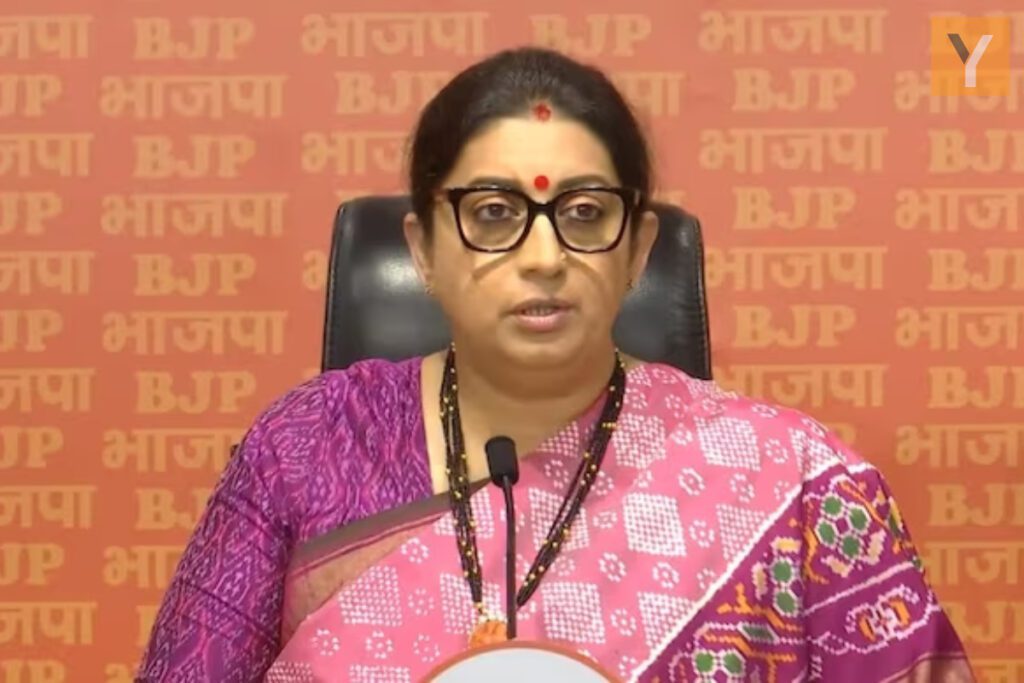
In the hallowed halls of Parliament, a recent exchange surrounding the draft menstrual hygiene policy revealed not just policy disagreements but a startling lack of understanding and sensitivity. Union Women and Child Development Minister Smriti Irani’s response to LGBTQIA+ inclusion in the policy left a trail of controversy. They raised poignant questions about the inclusivity of public policies.
LGBTQIA+ Community Merits Recognition
The retort from Smriti Irani, “Which gay man, without a uterus, has a menstrual cycle?” demonstrated a dismissive and, frankly, ignorant stance toward the LGBTQIA+ community. This is not a mere faux pas but a reflection of a broader societal reluctance to acknowledge and cater to the needs of a diverse community that encompasses a spectrum of identities beyond the conventional gender binary.
LGBTQIA+ Inclusivity
Manoj Kumar Jha’s inquiry on LGBTQIA+ inclusion in the menstrual policy was not an attempt to provoke but a legitimate call for recognition. The LGBTQIA+ community is not homogenous; it comprises individuals with unique challenges and requirements. Irani’s attempt to trivialize the issue by reducing it to anatomy exposes a glaring blind spot in the policymaking process, one that disregards the nuanced needs of the LGBTQIA+ populace.
Ignoring Transgender Struggles
Irani’s resistance to mandatory paid menstrual leave under the guise of feminist empowerment is a paradox. By framing menstruation solely within the context of women’s experiences, Irani inadvertently sidelines the struggles of transgender men and non-binary individuals. This feminist flaw perpetuates an outdated gender binary. It fails to recognize the multifaceted nature of gender identity in contemporary society.
[adinserter name="One"]Opposition’s Outcry
Opposition leaders Supriya Shrinath and Priyanka Chaturvedi have vehemently criticized Irani’s remarks. Shrinath, decrying Irani’s apathy and ignorance, emphasized that the LGBTQIA+ community extends beyond gay men alone.
[adinserter name="Four"]Chaturvedi termed Irani’s comment as shocking and insensitive, highlighting the need for a more comprehensive understanding of the LGBTQIA+ spectrum. Their voices amplify the growing discontent with Irani’s approach, urging a more inclusive and informed policy discourse.
Shameful that we have a minister who doesn’t get the ambit of LGBTQIA+ – a commonly used umbrella term that includes transgenders, many of whom do menstruate. Her arrogance towards an issue which is a lived experience of many is shocking & insensitive. pic.twitter.com/ktHmKv7TEV
— Priyanka Chaturvedi🇮🇳 (@priyankac19) December 23, 2023Beyond Binary
To appreciate the impact of menstrual policies on the LGBTQIA+ community, understanding the experiences of transgender and gender-diverse individuals is imperative. Aranya Vadera’s insights underscore the humiliation and alienation faced by transgender individuals in healthcare settings. Policies must transcend binary thinking and adopt inclusive language that encapsulates the diverse realities of gender identities.
[adinserter name="Two"]Research as a Reality Check
Referencing a study titled ‘Outcomes of Menstrual Management Use in Transgender and Gender-Diverse Adolescents’ published by the National Library of Medicine in March 2023 reaffirms that menstruation is not solely a physical process but a psychological battleground for transgender and gender-diverse adolescents.
[adinserter name="Five"]The urgency for gender-affirming policies that consider the mental and emotional toll becomes apparent. The study challenges policymakers to move beyond traditional paradigms and cater to the unique needs of transgender youth.

Conclusion
Smriti Irani’s comments have transformed a policy discussion into a more significant societal debate. The opposition’s condemnation and the nuanced perspectives from various quarters indicate a pressing need for conscious policymaking.
The menstrual policy discourse is not just about uteri and cycles; it’s about dismantling archaic ideologies that perpetuate ignorance. As the storm rages on, policymakers must seize this moment for introspection and ensure that policies reflect the true diversity of the society they govern.
[adinserter name="Three"]Frequently Asked Questions (FAQs)
-
What prompted the controversy surrounding Smriti Irani and the draft menstrual hygiene policy?
The controversy arose when RJD MP Manoj Kumar Jha questioned Smriti Irani about the inclusion of the LGBTQIA+ community in the draft menstrual hygiene policy during a parliamentary debate. Irani’s response, “Which gay man, without a uterus, has a menstrual cycle?” ignited a firestorm, drawing attention to the lack of understanding and inclusivity in policymaking.
-
How did opposition leaders react to Smriti Irani’s comments?
Opposition leaders, including Supriya Shrinath and Priyanka Chaturvedi, strongly criticized Smriti Irani’s remarks. Shrinath denounced Irani’s apathy and ignorance, emphasizing that the LGBTQIA+ community extends beyond gay men alone. Chaturvedi termed Irani’s comment as shocking and insensitive, calling for a more comprehensive understanding of the LGBTQIA+ spectrum.






